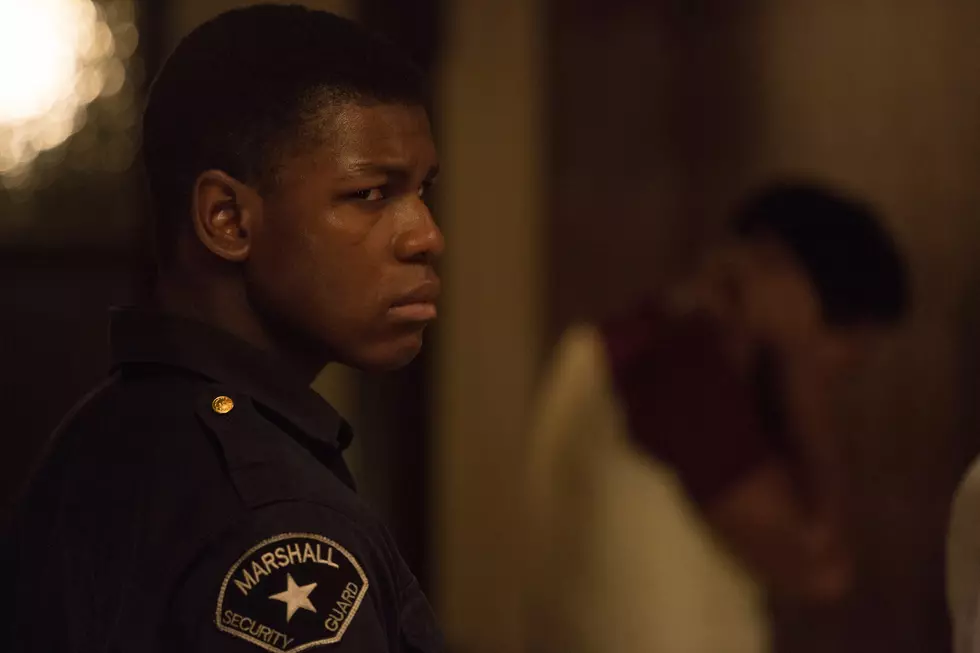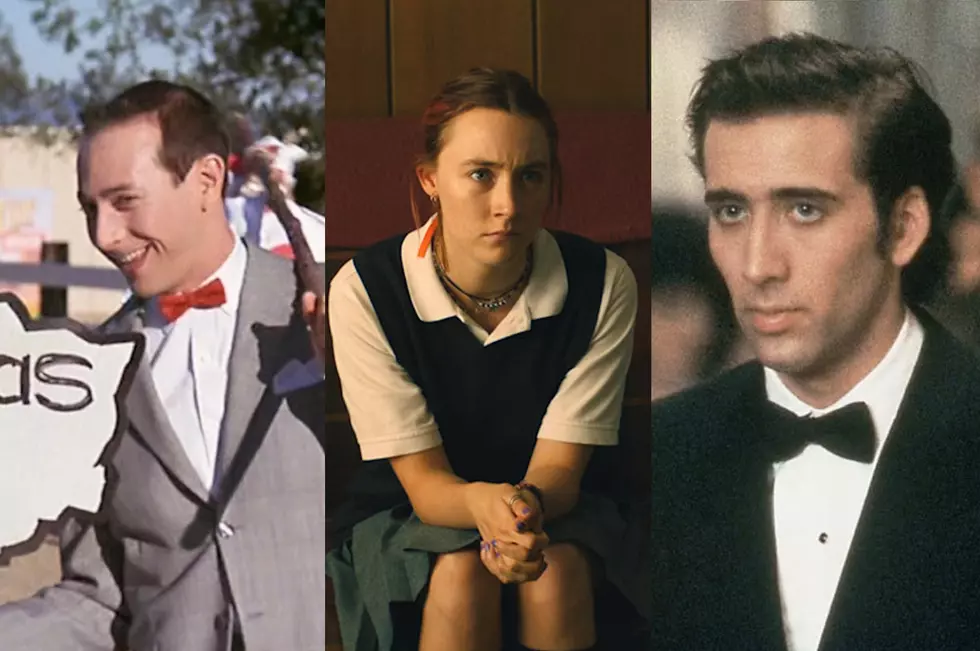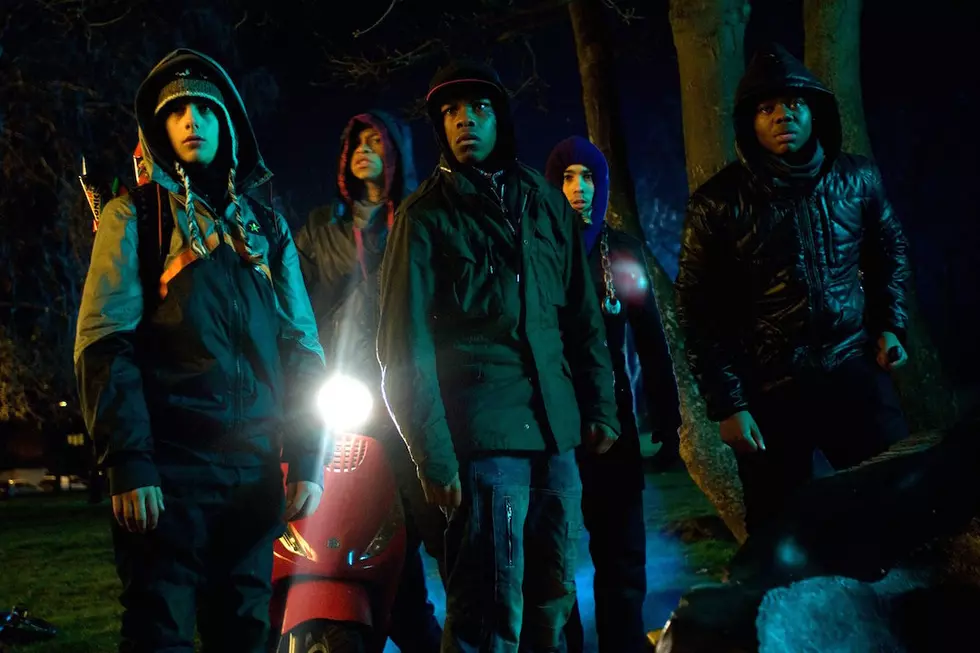
‘Detroit’ Review: Kathryn Bigelow’s Harrowing, Taut Historical Drama Isn’t Sure What It Wants To Say
Shortly after midnight on June 25, 1967, shots were heard outside of the Algiers Motel in Detroit, Michigan. A group of policemen and National Guardsmen entered the motel looking for a sniper. The night ended with three black teenagers dead and nine others brutally beaten. The horrific incident, which took place during the Detroit riots, is the focus of Kathryn Bigelow’s latest harrowing examination of American history. But Bigelow’s film, written by Mark Boal (Zero Dark Thirty, The Hurt Locker), has too broad a title – this movie should more accurately be titled The Algiers Motel – and too broad a scope.
Detroit opens with an animated prologue that borrows painter Jacob Lawrence’s Great Migration work to briefly detail the nation’s history of racial segregation. We’re jolted to the real-life bar raid that kicked off the five days of civil unrest, and Bigelow wastes no time introducing the gutting brutality that ensued. The streets fill with smoke, storefronts are destroyed, a soldier shoots an innocent family’s home, a young black man gets gunned down by a shotgun in broad daylight. It’s a war zone, and it’s frightening. This movie isn’t about the Detroit riot, though. The first act skims the surface of the larger events with a distanced and detached perspective that betrays the visceral specificity of the story that follows inside the motel.
On the night of the incident (which a title card reveals is partially fictionalized due to lack of confirmed information), Algee Smith’s charming Larry Reed, a singer in soul group the Dramatics, and his friend Fred Temple (Jacob Latimore) check into the Algiers Motel to avoid the chaos unraveling on the streets nearby. When the two are invited to another room by two white women, Julie (Hannah Murray) and Karen (Kaitlyn Dever), another man (Jason Mitchell’s Carl) playfully fires a starter pistol to prank his friends. Soon after the local police and National Guardsmen posted across the street get calls reporting a sniper at the hotel. Three white police officers, Will Poulter’s racist Krauss, Ben O’Toole’s Flynn, and Jack Reynor’s Demens, raid the hotel along with a couple soldiers and John Boyega’s Melvin Dismukes, a part-time security guard.
Detroit quickly turns into an all-out horror movie, one that’s immensely disturbing and difficult to watch. One man is gunned down on the spot, then Krauss places a pocket knife beside him, his method for framing the black men he kills. After the officers find the white girls alone with Anthony Mackie’s Greene, they line the black guests up against a wall, pointing pistols to their heads and taking each into rooms to play twisted games. Without any context, these sequences could come right out of a home-invasion thriller. But unlike stories of victims arbitrarily tortured by psychotic killers, this violence is far from arbitrary or meaningless.
The motel incident is startling, suspenseful filmmaking, and easily the strongest part of the film. Bigelow frames her cast in uncomfortable close-ups, putting us right up against their tear-streaked, bruised faces to obscure our peripheral vision. Everything from the sharp sound design (the thuds of gunfire in this movie are absolutely terrifying) to the taut editing and tight framing emphasize the crippling panic and nightmarish claustrophobia of the incident. Detroit‘s cast elevate that frantic tension with marathon performances. Smith, Latimore, and Peyton Alex Smith are exceptional, and Boyega takes on a quieter, controlled panic. Poulter evokes pure villainy from the start, his performance is so explosive it practically made me nauseous watching his face contort with wickedness.
But as well-crafted as the motel scenes are, what Detroit does after we leave the Algiers left a bad taste in my mouth. The film pivots to a courtroom and breezes through the subsequent trial where a jury failed to indict the three white officers. (Sound familiar?) The problem is how Detroit appears uninterested in exploring the aftermath of the black characters’ trauma on a personal level; it gives very little screen time to the survivors and victims’ families. Boyega and Mackie get a few lines here and there during the trial, but Detroit doesn’t give them a chance to truly grapple with and unpack their experiences. It wants to watch their pain in excruciating detail, but cares little about their healing.
It’s worth noting that as a white critic, I can’t speak to the ways white filmmakers have depicted the experience of black pain, and I strongly encourage you to seek out critics of color for that perspective. However I couldn’t help but feel there was something off-putting about the way the film gets so up close and personal with violence, then discards that intimacy in favor of a neat and tidy courtroom ending, sending its audience away with a forced message of bittersweet hope. Though the middle of this film is told with such audacity, there’s a timidity to how it ends, as if Boal and Bigelow were gently tip-toeing their way out of the ugliness they’d just uncovered, unsure what to do with it next.
Since seeing Detroit I’ve been asking myself why this movie was made, and more specifically, who it was made for. It skillfully brings a still-relevant piece of history to the screen, but is Bigelow’s retelling for the education of white audiences, or is it an attempt to understand the trauma and violence that’s long been inflicted on black Americans by white folks? If it was made to teach white people that this country has mistreated its citizens of color, audiences need merely to look around and turn on the news for that. With so many moving parts, fluctuating between a broad viewpoint to an intimate one and back again, I’m not sure the film knows exactly what it’s trying to say about racism and violence other than it happened and it was bad.
Detroit suffers from muddled intentions and a lack of a clear why. It could have maintained a narrower focus on the lives of the black folks affected by the motel incident. Instead, Detroit tries to accomplish too much too cautiously.
More From ScreenCrush









